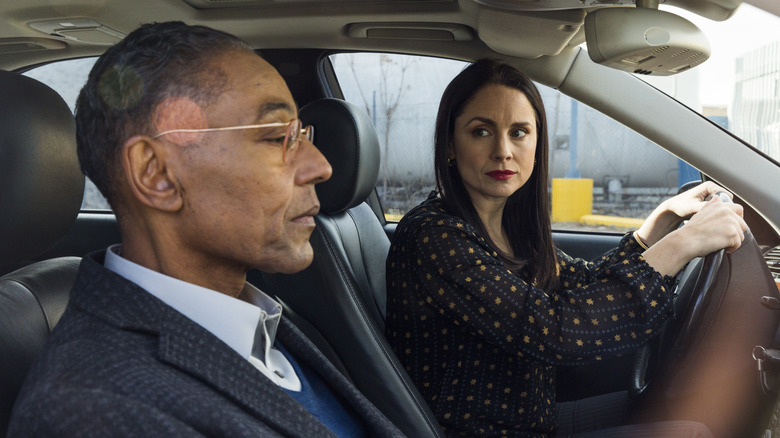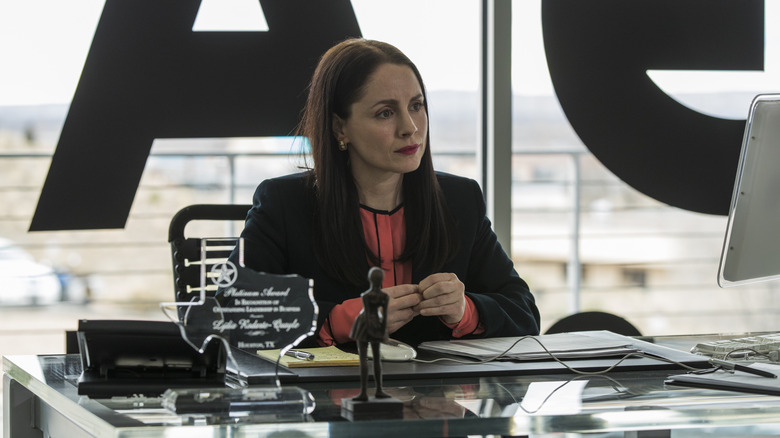Breaking Bad: Laura Fraser's Idea For Lydia's Backstory Before Better Call Saul
Among the "Breaking Bad" rogue's gallery, few villains are more memorable than Lydia Rodarte-Quayle, the high-powered executive who moonlights as a supplier of drug ingredients. Laura Fraser played the character in Season 5 and appeared in four episodes of "Better Call Saul," embodying Lydia with paranoiac energy that painted her as a unique presence in Albuquerque's criminal underworld. Lydia is an exacting, detail-oriented criminal who will do whatever it takes to protect herself. Though she may get a bit squeamish about having blood on her Louboutin stilettos or seeing a dead body, she won't hesitate to give the kill order against anyone who crosses her.
To properly embody Lydia with all her contradictions, Fraser constructed an elaborate backstory for the character based on a single line of dialogue. As she told GQ in 2013, "I definitely feel that she grew up in a group home, because — I think it was in Episode 505, 'Dead Freight' — she mentioned to Walt that she didn't want her child to end up in a group home, and how he didn't have any idea what these places are like. So I assumed that she'd come from that background."
Laura Fraser believes Lydia struggles in relating to other women
In the "Breaking Bad" Season 5 episode, "Blood Money," Lydia visits a retired Walter White (Bryan Cranston) at his car wash, where she implores him to return to cooking meth. The quality of the product has dropped off steeply in his absence, and she's convinced he alone can fix the problem. But Walt refuses, and when he tells his wife, Skylar (Anna Gunn) about the visit, she chases Lydia down, telling her to leave and never come back. Lydia, clearly intimidated, drives away without retort.
According to Fraser, she believes that brief encounter illuminates Lydia's history. "I think her mother definitely abandoned her," Fraser explained to GQ, "because she has very strange issues with women. Her reaction to Skyler at the car wash was so over the top. If that had been a man, I don't think she would have been as afraid; she was unnaturally frightened."
For Fraser, Lydia's driving motivation is to reclaim a sense of safety that she never had as a child: "She's just full of fear. She's always in fight-or-flight. I think she had an upbringing full of unhappiness and uncertainty, and I think she feels that if she just gets enough money and enough power, that she can be safe." Ultimately, that misguided pursuit of safety and stability leads Lydia to ever-greater acts of evil, all of which leads not to the life she wants but an early death at Heisenberg's hands. "But the fact is, she's gone completely zany, and she's lost the plot," Fraser said. "And she's never going to get that, I don't think."

